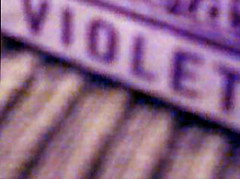North Atlantic. The Wooster Group. The REDCAT. 2/10/10.
North Atlantic is a Wooster Group deconstruction of military and gender politics, set more or less during the Cold War. South Pacific it ain't. It offers a wonderfully disturbing, problematic exploration of sex as war and sex in war, exploiting and exploding mid-century gender roles and the conventions of war movies. This piece differs from the Wooster Group productions I have seen in the past because it isn't an explicit deconstruction of one or two significant texts, but rather a critical response to an entire genre (or three).
First and foremost, North Atlantic is a piece about military culture and the military in popular culture. The action takes place on an aircraft carrier in the North Atlantic (although you wouldn't necessarily know that unless you read it in the program) and begins with a wonderfully gruff young officer (Roscoe Chizzum, I believe was his character name) spouting military intelligence cliches at two enlisted men. His rapid-fire delivery of utter nonsense was one of many high points of the production for me.
The production comes into focus when Wooster Group veteran Kate Valk appears as Ann Pussey, serving as madam for a team of secretaries. The women offer a series of bawdy sexual comments about competing in an upcoming wet uniform contest as they fiddle manically with reel-to-reel tape and rotary phones, separated from the downstage playing area of the men by a long table on a raked platform stretching upstage at a steep angle. Although all of the women were excellent, I found Maura Tierney with her shaved head and short shorts particularly compelling and I wish the character had explored that shockingly butch first impression more. Seriously. I would love to see a Maura Tierney play butch for real. *Swoon*
Lurking behind the explicit sexuality depicted in the play lies the threat of homosexuality. Implicitly, North Atlantic suggests that extreme performances of heterosexual voraciousness are necessary in the military to disprove the threat of queerness. When an outside officer, Ned Ludd, arrives on the carrier, Captain Roscoe first challenges his heterosexuality and later dismisses him as an 'egghead,' suggesting a critique of the military's homophobia and anti-intellectualism as intertwined. The constant low-level threat of homosexuality culminated in a dance scene at an after-hours social event in which three couples danced awkwardly together, with the heterosexual couple in the center, two men dancing together on one side and two women on the other. This scene created a beautiful tableau of the possibilities and impossibilities of romance and intimacy within military culture.
Occasional song-and-dance numbers livened and lightened up the production, providing another layer of interpretation by linking the military setting with cowboy images of Americana. At a few points in the show, the action stopped while everyone broke out into slightly skewed versions of familiar songs such as "Yankee Doodle" and "I Ride an Old Paint." Though I believe these songs have existed since the show's beginnings in 1983/4, they felt particularly pertinent in evoking the George W. Bush's cowboy militarism of the most recent wars. These songs speak to the central images of how the U.S. views itself and represents itself as a military powerhouse that valorizes individuality and independence even when they are destructive or impossible. In the stark technology of the stage/battleship, these songs offer a nostalgic depiction of rural romanticism and longing for a Wyoming that seems impossibly distant, while being corrupted by the raunchy worldliness of the plays characters (particularly the women).
The play also deals with issues of interrogation and torture in a comical but disturbing way. Overall, North Atlantic explores and exaggerates the cliches of military culture and how the military is represented to civilian audiences in a strange, disturbing, thoughtful way. Like all Wooster Group productions, there are more questions than answers, but sometimes that in itself can be compelling and productive if the questions are asked in the right way. I have criticized the Wooster Group in the past for depicting problematic political and cultural images (most notably blackface in Route 1 & 9) without clear critical commentary. In this piece, while their position wasn't necessarily unambiguous, it at least gives me a hook on which to hang my own critical hat, suggesting satirical commentary on a culture of sexism and sexual exploitation within the military and criticism of the popular reconfiguration of rigid gender roles and sexual opportunism into film narratives of romance. These aren't necessarily the Wooster Group's or director Elizabeth LeCompte's positions, but they are the ideas that the performance inspired me to think about, and I think for this production, that is critical interpretation enough.
NOTE: Please excuse the fact that I haven't linked actor names to the roles. The program only offers the list of ensemble members, so all I know is that the cast includes Ari Fliakos, Frances McDormand, Scott Shepherd, Kate Valk, and special guest artists Steve Cuiffo, Koosil-ja Hwang, Paul Lazar, Zachary Oberzan, Jenny Seastone-Stern and Maura Tierney and they were all absolutely excellent in a demanding ensemble performance. If I can find more information, I will try to amend the text at a later date to reflect proper actor and character names.
My 2025 in Review
-
Hi Friends! Happy Holidays! Here is my 2025 rundown.
Another year of being a full time playwright! It's been about 2 and a half
years now. I feel li...
4 weeks ago

0 comments:
Post a Comment